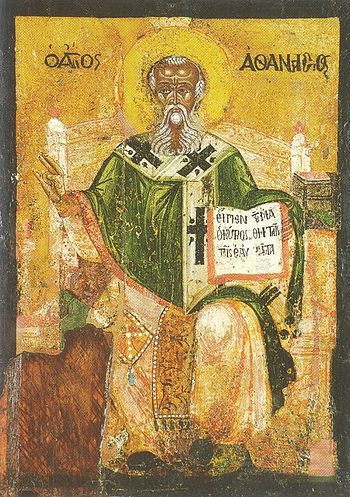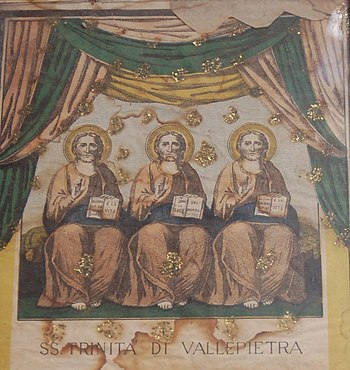Today is the liturgical memorial of
St. Athanasius of Alexandria (295-373), theologian, ecclesiastical statesman, and Egyptian national leader, who was the chief defender of
Christian orthodoxy in the 4th-century battle against
Arianism, and who is the most favourite teacher of the false teaching of tri-une doctrine.
In his youth, as secretary to Bishop Alexander, he took part in the christological debate against
Arius at the
Council of Nicaea (see
Nicaea, First Council of),
and thereafter became chief protagonist for
Nicene orthodoxy in the
long struggle for its acceptance in the East. He defended the
homoousion
formula that states that Jesus is of the same substance as the Father,
against the various Arian parties who held that Jesus was not identical
in substance with the Father.
Athanasius’ two-part work of apologetics,
Against the Heathen and
De Incarnatione Verb or The Incarnation of the Word of God, completed about 335, was the first great classic of developed Greek Orthodox
theology, in whihch he refuted the Epicurean atomists, who maintained the world could have
spontaneously sprung into being by chance, by elucidating the signs of
Divine Providence discernable in creation (Chapter I, nn. 2-3).
In Athanasius’ system, the
Son of God, the eternal Word through whom
God made the world, entered the world in human form to lead men back to
the harmony from which they had fallen away. Athanasius reacted
vigorously against Arianism, for which the Son was a lesser being, and
welcomed the definition of the Son formulated at the
Council of Nicaea in 325: “consubstantial with the Father.”
Athanasius was accused of threatening to interfere with the grain supply
from
Egypt, and without any formal trial Constantine exiled him to the
Rhineland.
During his period of hiding with the hermit monks of the Egyptian
desert, whom he admired greatly, he wrote his exposition of
Nicene christology,
Discourses Against the Arians, attacking both the Arians and the views of
Marcellus of Ancyra.
The
Athanasian Creed, a summary of Christian doctrine formerly attributed to
St Athanasius, but probably dating from the 5th century is included
in the
Book of Common Prayer for use at morning prayer on certain occasions.
+++



















